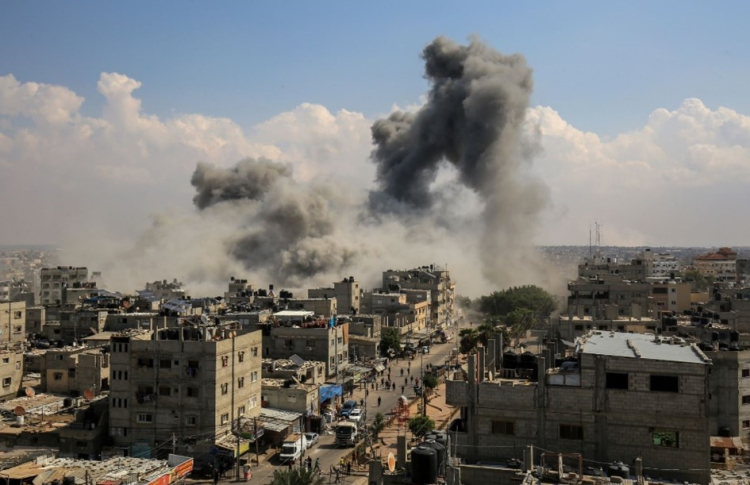Escalation risks mount beyond Gaza for Israel’s conflict with Hamas

The risk of regional conflict in the Middle East was addressed by Elizabeth Stephens, managing director, Geopolitical Risk Advisory, speaking on a forthcoming episode of The Political Risk Podcast.
As Israel begins ground combat against Hamas in Gaza in response for the terrorist attacks launched on 7th October, regional tensions within the Middle East are near boiling point.
Whether the conflict between Israel and Hamas can be confined to Gaza or spreads to Hezbollah, to the north in Lebanon, or elsewhere to the Palestinian areas of the West Bank, will largely determine whether or not the violence can be contained or will escalate.
The risk of escalation across the Middle East was the focus of an episode of the Political Risk Podcast, scheduled to publish in early November, featuring as a guest, Elizabeth Stephens, managing director of Geopolitical Risk Advisory.
Escalation, in this context, could mean Hamas’s paymasters in Iran, which has already been accused of training the attackers of 7th October, as well as being a known supplier of weapons to Hamas. Iran also backs Hezbollah, while the latter is additionally supported by Bashar al-Assad’s Syrian regime, which is allied with Vladimir Putin’s Russia.
Escalation could mean the involvement of Israel’s allies, including Western European countries such as the UK, which has military assets on Cyprus, and the US, which has two US Navy aircraft carrier strike groups in the eastern Mediterranean. An American warship in the Red Sea has already shot down several long-range missiles that it said were targeted for Israel, claiming these were launched Houthi rebels in Yemen, an Iranian proxy.
“A tremendous amount will depend on the position that Russia and China take. Because at the moment, they are remaining aloof from the conflict in anything other than perhaps a diplomatic capacity,” Stephens said.
“But if this was to escalate, Russia will not allow Assad to be overthrown in Syria, for example, were Israel to escalate operations against Syria – at the moment, there's no indication that is going to happen,” she said.
“For China, trading routes and open sea lanes around the Gulf are far more important than they are to the Americans now, because China relies on large scale all imports from the Gulf states. China has an interest in stability there, and if the conflict does expand to include Iran, or any other states, will see severe disruption to shipping in the region,” Stephens added.
Challenges for businesses
For any firm operating in Israel, there are already severe challenges, not least the cancellations of flights, marine cargo and trade disruption, and war risk exclusions coming into play for marine and aviation insurance.
All of which means there are many business continuity risks and logistical problems for businesses continuing to operate in the country.
“In Israel, the biggest challenge for businesses at the moment is that with at least 360,000 former members of the military mobilised as reservists, there is a shortage of workers, so quite a number of businesses are staying closed,” Stephens said.
She moved on to consider the security landscape, for firms with assets in Israeli cities, fearing the risks of violence spreading.
“We should remember that Israel has very high calibre intelligence services, so the risk of a terrorist attack is relatively low, the majority of time within Israel,” she said.
The Hamas attacks on 7th October mostly struck rural areas and relatively remote communities that, tragically, proved more vulnerable.
“The Hamas attack was brutal and audacious, but one of the reasons it was able to proceed in the way that it did, is that the border between Gaza and Israel wasn't defended,” Stephens said.
“The government of Benjamin Netanyahu isn't going to allow that to happen again. Internal security within Israel is very tight, so on a practical level, there, I don't believe there's a threat to companies from that perspective,” she continued.
If this continues, whether we see terrorist attacks against Western interests in Saudi Arabia and the UAE, for example, I think they're more likely to happen in Iraq, in more unstable Arab countries, than in the big financial centres. The security and intelligence services in those countries are very effective, and they rely on American intelligence, as well,” she added.
Once the full podcast episode is published in November, click below to listen to it in full, or via Spotify, Apple, etc. https://www.politicalriskpodcast.com/episodes
